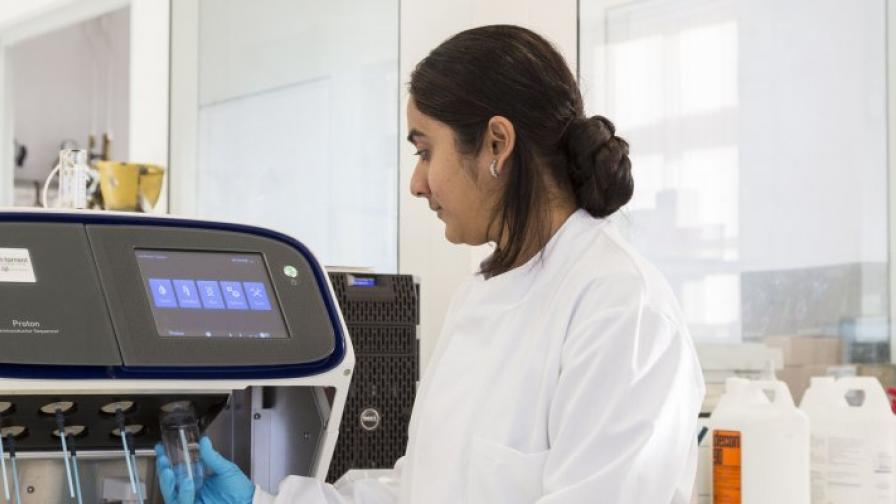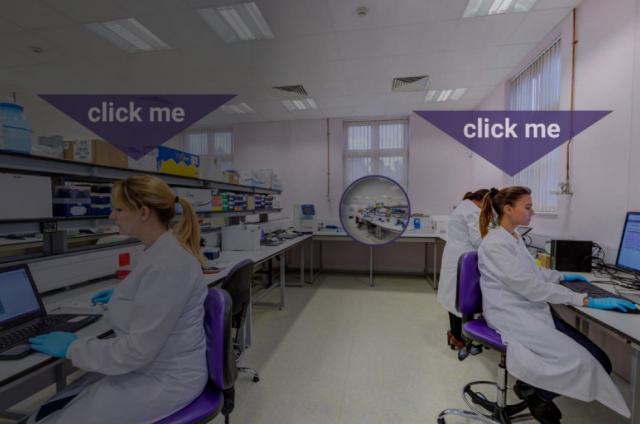
The future of genomics
Our hope for the future is to find the right treatment, for example the right drug, at the right dosage, from the point of diagnosis. Genomic medicine has the potential to transform the way we care for people with epilepsy, and we believe that whole genome sequencing will help us to unravel the genetic architecture underlying the different types of epilepsy.
We hope it will help us determine the cause of a person’s seizures, their response to anti-epileptic medication and their susceptibility to Sudden Unexpected Death in Epilepsy (SUDEP), and that this will enable us to prescribe more personalised, targeted treatments and reduce the burden that epilepsy places on many people’s lives.
Dr Krithika Iyer Sundararaman, postdoctoral research fellow, using whole exome sequencing technology to read DNA at Epilepsy Society's Chalfont Centre (pictured right).
Innovation
Find out about our innovative genomics clinic and our pioneering research that is changing the landscape of epilepsy.
Research projects
Read how we are working to understand the genetic architecture of each individual person's epilepsy through our world leading genomics research programme.
Our researchers
Meet the team at Epilepsy Society leading the way in global research. Our team are passionate about translating research findings to improve the lives of people with epilepsy.
Neuropathology
The Epilepsy Society Brain and Tissue Bank is the first of its kind in the UK. It is dedicated to the study of epilepsy through brain and other tissue samples.
Neuroimaging
Neuroimaging enables us to look deep inside the brain to learn more about the impact of seizures on its structure and function.
Research
The ultimate goals of our current research are to spearhead personalised treatment and to incorporate genomic diagnosis into the NHS for people with epilepsy.






